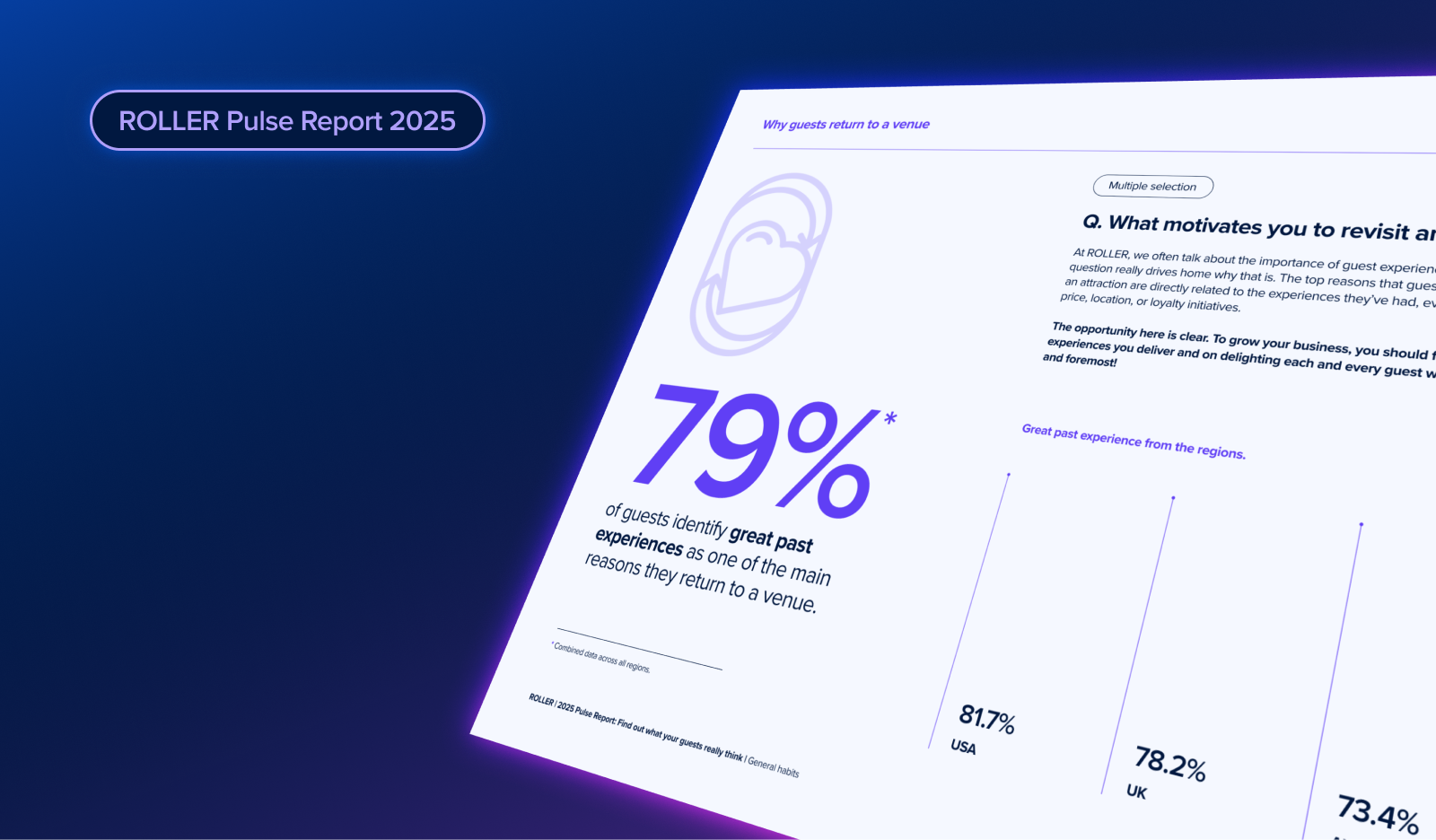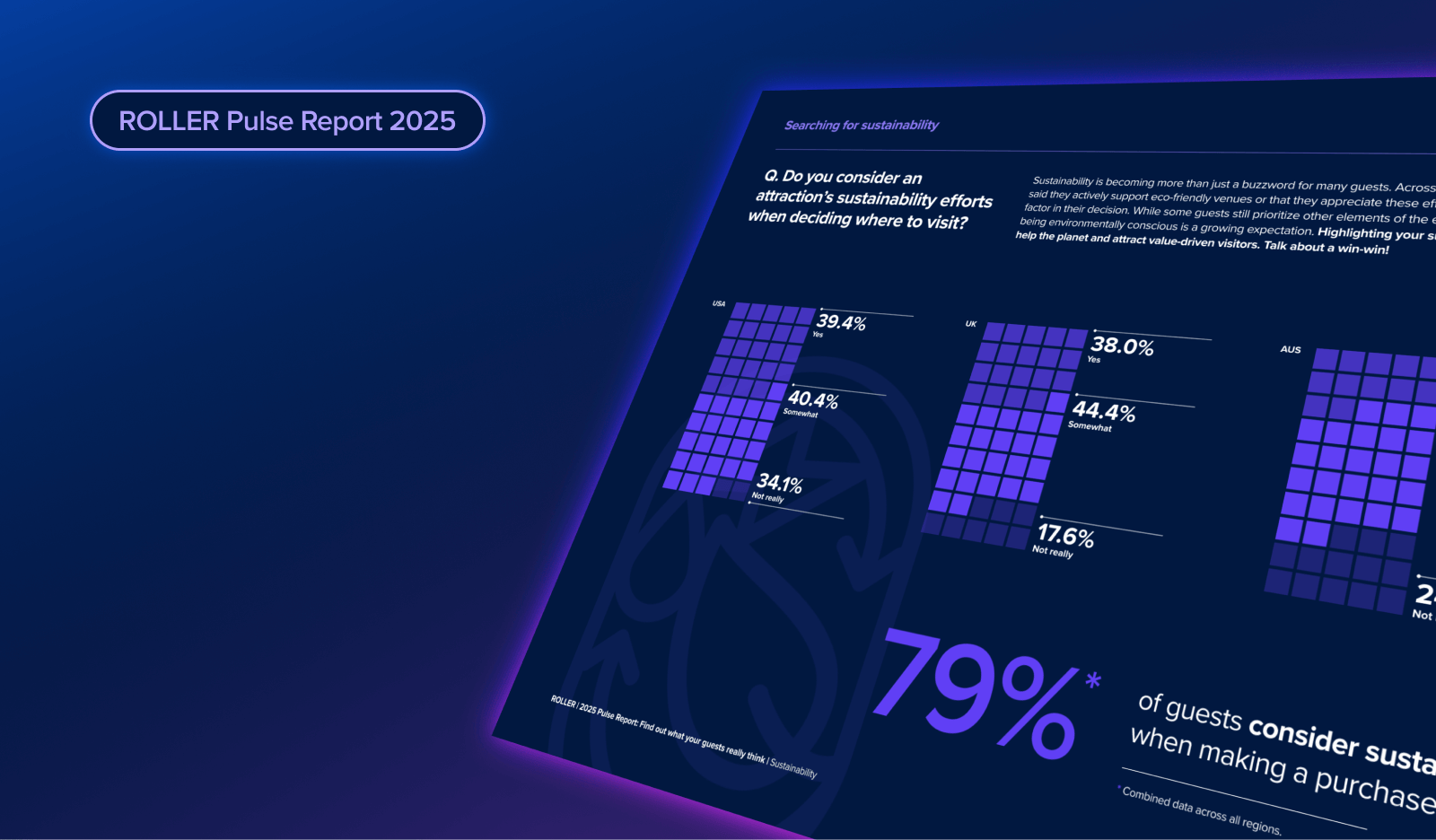Why Collecting Guest Feedback is Critical to Driving Word Of Mouth
.png?width=820&name=Why%20collecting%20guest%20feedback%20is%20critical%20to%20creating%20advocates%20(1).png)
The Guest Experience Flywheel is made of five interconnected elements of your guests’ journey: Attract, Engage, Deliver, Return, and Advocate. It begins with creating awareness and setting expectations for new guests and ends with your guests becoming so satisfied with their experience that they want to return and tell everyone they know.
Much of this must happen organically through the experience that you deliver. You must focus on exceeding your guests’ high expectations and creating “wow” moments that turn into impactful memories. Once you’ve checked these jumbo-sized boxes, you can start to harness your guests’ satisfaction and begin to convert it to loyalty.
But there’s one thing you need to do first: collect feedback. Here’s why:
Collecting guest feedback allows you to segment your guests
Most people don’t speak up after an experience, regardless of whether it was good or bad. While this is disappointing when considering your satisfied guests, it is troubling when you factor in those who did not enjoy their visit. Studies have shown that approximately 96% of people who have a complaint won’t speak up… instead, they just don’t come back. This is detrimental to your business because, with feedback, you can take action to drive your guests toward advocacy, even if they started on a sour note.
When you actively collect feedback, you encourage more guests to speak up, helping to narrow the gap of guests who have feedback and guests who provide it. This feedback enables you to divide your guests into two categories: promoters and detractors. There are actions to take with each segment of guests that lead them to advocacy and favorable word of mouth.
Side note: there is no such thing as a passive guest. In the highly regarded Net Promoter Score, which is a ranking of 0-10 on how likely guests are to recommend your business to friends and family, those who rank this question as a 7 or 8 are deemed to be passive, or in other words, indifferent. This would suggest that the guest had an experience that matched their expectation identically; nothing more, nothing less. While guests may self-identify as passive, there is more to tease out regarding their perception of the experience. What went right, and what went wrong?
When feedback is negative, jump into recovery mode
Just because someone criticizes their experience when providing feedback does not mean that all is lost. The opposite is true. When you successfully resolve a guest’s concerns after they complain, they are more likely to perceive the business even more favorably due to the stronger emotional attachment that they’ve built. For example, effectively guiding the guest through the LAST model of complaint resolution will quickly turn a critic into an advocate. This is proven to be true for the smallest of hiccups to the largest issues and service failures that guests can receive.
Once the recovery is successful, you will have converted a detractor to a promoter.
When feedback is positive, drive advocacy
Satisfied guests, or promoters, should be actively led toward becoming advocates. A loyal advocate for your business does three main things:
- The come back
- They influence others to visit
- They defend you when you need them most
One who advocates your business proves their loyalty through coming back. Retaining visitors costs substantially less than attracting new ones, so this already alleviates the pressure from your marketing efforts to boost attendance. Encourage repeat visitation by expressing an invitation to return, tell them what they can’t do today, and give them a monetary incentive when appropriate.
Next, they influence others to visit. Word of mouth is extremely powerful and comes in many forms. At its core, people will tell friends and family about their experience, and whether it is positive or negative, the message is being spread to those who trust them. Zooming out a little, social media platforms widen the audience to those who are still connected to the guest somehow, but perhaps not as closely. Then, the power of online reviews carries so much influence that approximately 90% of people are heavily influenced by review sites, regardless of industry.
And lastly, not only do your advocates make it easier for your marketing department, they also act as an extension of your public relations team. Through their influence on social platforms and review sites, they will come to your defense when someone shares negative feedback or if you are in the news for unfavorable (and unjustifiable) reasons. This type of advocacy is often considered the pinnacle of loyalty.
The purpose of the flywheel is to build momentum so that it spins faster with less and less effort. The faster it spins, the less work you need to do on the marketing end, which makes it easier for your most satisfied guests to be the force that grows your business. By actively collecting guest feedback, you can be at the forefront of converting satisfaction to loyalty.
And remember, this can only happen when you deliver a world-class guest experience.
Related articles

.png)
What the 2025 Pulse Report Reveals About Guest Booking Behavior at Attractions

